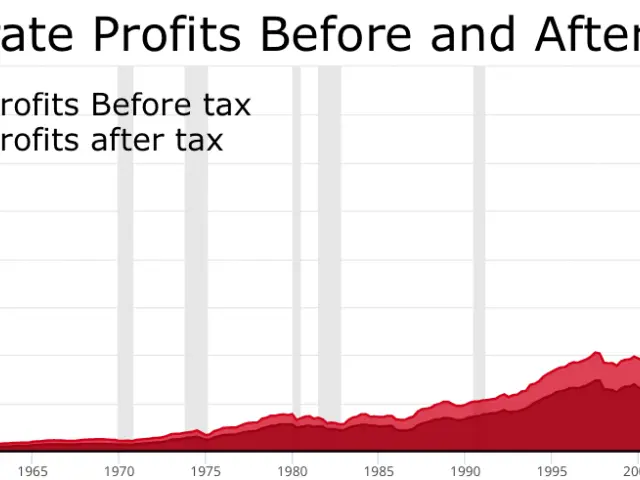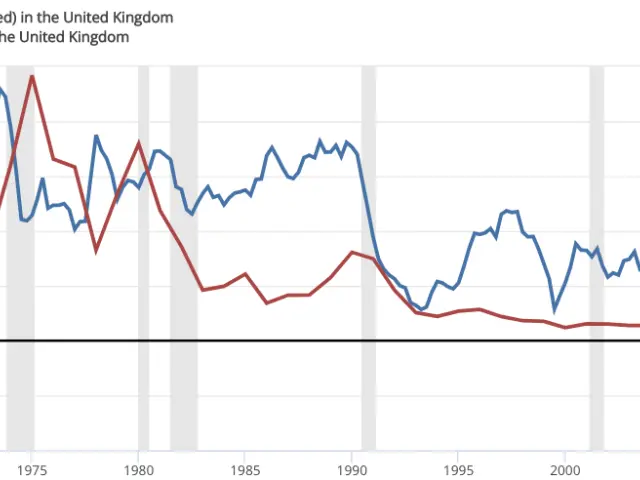The Failure to Pass Major Cannabis Legalization Initiatives: Is the Marijuana Market's End Near?
Last Election Day, all three recreational marijuana legalization proposals in ballots didn't make the cut. This marked a significant shift from earlier election cycles where similar initiatives enjoyed success. The market responded instantly with investors selling off North American weed stocks upon learning this news. The future seemed bleak for these entities, leaving many to wonder if they were on the right track.
Marijuana Misfortune
Five marijuana legalization proposals served on the voting ballot. Three of those proposed recreational use, with Massachusetts voters being asked to decide on allowing psychedelic substances like psilocybin and mescaline.
Unfortunately, every one of the recreational proposals fell by the wayside. Voters in both North and South Dakota cast their "no" votes, as did the residents of Florida, who narrowly failed to meet the 60% threshold for passage. Massachusetts voters also rejected the psychedelics measure.
The setback hit Florida the hardest, as it houses the third-largest population in the U.S., with over 22 million individuals calling it home.
The weed leader in Florida, Trulieve Cannabis (TCNNF 3.48%), bore the brunt of this defeat. Reports indicated that the company contributed $140 million to Smart & Safe Florida, the political committee responsible for pushing the legalization agenda. This move became a significant factor in the company's shares opening 56% lower on the first post-Election Day trading session.
While Trulieve's investment was a reasonable strategy, the company's financial resources are limited. Much like other publicly-traded cannabis companies, Trulieve has had trouble staying in the black, reporting net losses in recent quarters.
Trulieve has vowed to continue its fight within Florida, but it remains unclear if they plan to continue providing substantial financial support to that cause. The uncertainty has not helped the stock's performance.
Other publicly-traded cannabis companies saw losses as well, regardless of their involvement in the latest legalization efforts. For instance, the stock prices of Illinois-based manufacturer and retailer Green Thumb Industries (GTBIF 4.54%) and pot real estate investment trust (REIT) Innovative Industrial Properties (IIPR -19.98%) took a hit.
Canadian operators were affected less, but some notable names like Tilray Brands also suffered losses, given their limited U.S. operations.
Yet, there's hope...
It can be easy to view the marijuana sector negatively following these election results, which represent a decline in comparison to the two successful recreational legalization measures in Election Day 2022 and the triumph in 2020, when all four state proposals passed.
However, taking a long-term perspective might provide a different outlook. A decade ago, widespread recreational legalization would have been unimaginable. While the recent setbacks are noteworthy, approval has spread quickly and effectively enough to lend support to an entire industry.
Even with these recent defeats, recreational pot is now legal in over half of U.S. states (24, to be exact). The number for medical weed is even higher, accounting for 38 states.
The bright spot in the 2024 election is the passing of the medical consumption and sale law in Nebraska. This indicates that the legalization train has not stopped or reversed; instead, it has simply slowed down.
Looking ahead, the public favorably supports legalization, and there are reports that the federal Drug Enforcement Agency (DEA) is reconsidering the classification of marijuana from Schedule I to Schedule III. This classification system ranges from 1 (drugs with no medical use and a high potential for abuse) to 5 (drugs with low potential for abuse).
The DEA was scheduled to hold an administrative hearing on the rescheduling of marijuana this year, but it has been postponed to at least 2025. However, with a growing public consensus and substantial evidence to back up medical use, it seems inevitable that the DEA will eventually reclassify marijuana, which would effectively legalize recreational cannabis throughout the nation.
In a nutshell...
Full-on legalization might be delayed but is not lost. The cannabis industry has taken a hit with these election results, but the future remains promising. Investors should seize this opportunity to buy shares of strong cannabis companies at depressed prices while anticipating Rescheduling Day.
Look for companies with solid financial resources, proven ability to make profits, and capable management teams. One company that fits this description is Innovative Industrial Properties, which consistently generates profits and pays out dividends. While Trulieve and Canadian operators may struggle in their respective markets, Green Thumb Industries looks promising due to its substantial funds and recent financial performance.
Editor's note: This article has been corrected: The DEA is considering moving marijuana to Schedule III.
Despite the recent failures in recreational marijuana legalization initiatives, there's still potential for growth in the industry. Investors might find it beneficial to buy shares of strong cannabis companies at reduced prices, anticipating a potential rescheduling of marijuana from Schedule I to Schedule III by the DEA. Companies like Innovative Industrial Properties, known for their consistent profits and dividend payments, could be promising investments. Green Thumb Industries, with its substantial funds and solid financial performance, is also a prospect to consider. The future of the cannabis industry may be delayed, but it's not lost.








